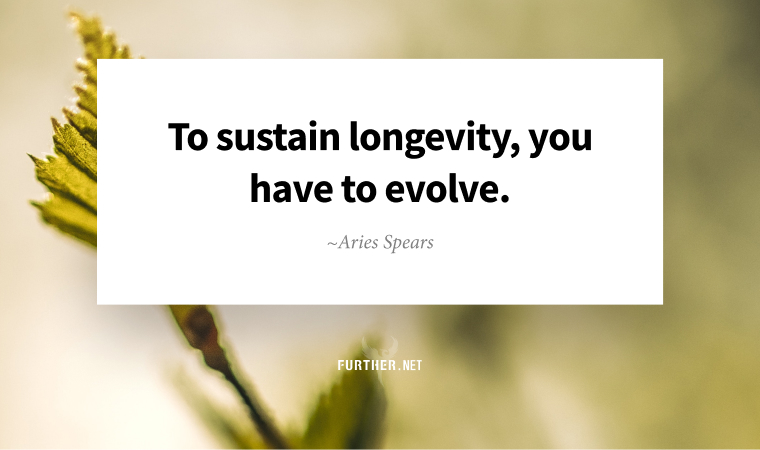
Since the spring, Dr. Peter Attia’s book, Outlive: The Science & Art of Longevity, has been a bestseller. It’s all about rethinking medicine to live better longer — a natural topic for Further.
Confession time: I’ve long lumped Attia into the “biohacking for bros” category. To me, expensive, extensive tracking of every single vital so you can have the physique of a 30-year-old at 80 just doesn’t sound like living your best life at midlife — or any time, actually.
But then, thanks to a recent New York Times interview, along with a plug from the always-sensible publishing expert Jane Friedman, it seems Attia’s work deserves a closer look. Indeed, he told the NYT that he’s no longer a “physical specimen” as he was a decade ago when he followed “the most restrictive diet in the history of diets.” Today, he better exemplifies the point of longevity.
Do [I] want to eat like a monk every minute of every day? No. I love food. My days of being a freak around food are over.
Being able to eat a cookie baked by his kids is a new priority that surfaced not when his children were born but years later after he had done deep therapeutic work, including inpatient treatment, to address his emotional health. And it points to perhaps the most crucial insight from Attia’s work and lived experience.
What I eventually realized, after this long and very painful journey, is that longevity is meaningless if your life sucks. Or if your relationships suck… All of these need to be addressed if your life is to be worth prolonging — because the most important ingredient in the whole longevity equation is the why. Why do we want to live longer? For what? For whom?
Need help figuring out your why/what/for whom? Try this exercise: give yourself five minutes to write down the 10 most memorable moments in your life until now. Then, take another five minutes and write down the 10 most significant milestones and moments you anticipate in the coming decades.
Chances are your lists, both past and future, involve the people and pursuits you care about most. And they also likely include your active participation in those memory-making moments.
Now that you know your why, it’s time to get serious, not just about lifespan but also healthspan. The crux of Attia’s work is that we must be proactive about preventing the chronic diseases that can shorten both of these longevity measurements — what he calls “the four horsemen”: heart disease, cancer, Alzheimer’s, and metabolic disorders (i.e., diabetes).
The good news is what Attia suggests isn’t something you’ve never heard of or is hard to attain. It’s all the topics we continuously cover here at Further that are central to lifelong health: nutrition, exercise, sleep, and emotional wellness.
Attia also recommends taking a proactive stance to move out of the “Medicine 2.0” phase, which emphasizes treating the symptoms of chronic illnesses after they’ve become problematic, into “Medicine 3.0,” which is more focused on prevention for as long as possible to increase healthspan.
If you think all of this requires significant investment, you’d be correct. It entails spending time and money understanding your unique biochemistry and addressing your physical and mental health challenges. But it doesn’t have to be excessive, just incremental and consistent.
When you consider the payoff later in life, it’s not heavy lifting at all. In fact, it’s the best way to outlive your expectations of how extraordinary life can be until the very end.
Further exploration:
Outlive: The Science and Art of Longevity by Peter Attia, MD
The Peter Attia Drive podcast (especially this episode with his therapist, Esther Perel, on the effects of trauma, the role of narratives in shaping our worldview, and why we need to accept uncomfortable emotions)
Want to Live Longer and Healthier? Peter Attia Has a Plan. (New York Times)
Why Mainstream Medicine Struggles to Prevent Chronic Disease—and What You Can Do About It (GQ)
Keep going-
P.S. New to Further? Join us here.
Well + Wealthy
Sure, we have a whole community dedicated to this idea — but don’t just take our word for it. A recent Modern Wealth survey from Charles Schwab shows that most adults define wealth not by their financial assets but by their well-being. Now that’s what we call leading a rich life.
Holy Guacamole
Let’s have an avo toast to the ever-trendy fruit that doesn’t just taste great but also has some delectable effects on your health. A new study shows avocados contain a molecule that can help you maintain a healthy weight and may assist in diabetes prevention. Guac on with your good health 🥑.
The Fruit That Helps Weight Loss And Prevents Diabetes (PsyBlog)
Go Jump in a Lake
One of the Global Wellness Summit’s 2023 trends was wild swimming – and we forgive you if doing a polar plunge wasn’t your thing. But now that summer’s here, it’s time to head to your favorite natural body of water and dive into the health benefits, which include decreased stress, anxiety, and inflammation and increased cardiovascular strength, endurance, and fitness. Might seem fishy, but it works.
Take the Plunge, Try Wild Swimming (Bustle)
Playing (and Paying for) the Long Game
Literacy is important throughout your life, and as you age, longevity literacy becomes crucial. That’s the ability to accurately estimate your likely lifespan and plan accordingly to have enough income as you age. Now’s a great time to start planning to mitigate your longevity risk.
You’ll Probably Live Longer Than You Think (NerdWallet)
The Magic of Savoring Life

By Trudi Roth
In Gretchen Rubin’s classic book, The Happiness Project, first published when my daughter was seven, she wrote a line that always got me:
The days are long, but the years are short.
Cut to today, when I’m headed to my daughter’s college graduation, and I realize those prescient words still haunt me. (Cue the tears; if you want to savor a good cry, watch Rubin’s minute-long video illustrating this line.)
Time waits for no one, which can be either a curse or a challenge, depending on your perspective. If you’d rather be filled with joy and appreciation vs. regret and longing, then good news! All you need to do is get better at something you instinctively do when you consume something divine, like a perfectly ripe strawberry, silky chocolate truffle, or a smoky, oaky red wine.
Savor it, baby.
The Pleasure Principle
Pausing to delight in something is a multi-faceted experience. It engages all five senses and unleashes a rush of feel-good hormones, including dopamine and serotonin. Psychologists define savoring as:
The capacity to attend to, appreciate, and enhance the positive experiences in one’s life.
Mindfulness is mixed into that savory sauce, but that doesn’t mean it solely happens when you’re experiencing something. You can relish a memory or the anticipation of what’s to come. Plus, savoring can be something you orchestrate — or not.
Savoring can be reactive — spontaneously responding to an unanticipated positive experience; it can also be proactive —deliberately seeking out or creating a positive experience.
The key to indulging in positive reflection on your timeline is a particular flavor of mindfulness: intentionality.
Revel Well
Even though savoring is a natural, reflexive action, you can also cultivate it. Researchers have identified several “savoring strategies,” which include:
- Listing your pleasures: Knowing what brings you joy makes it easier to seek it out.
- Coming to your senses: When enjoying something wonderful — a sunset, a sip of herbal tea, or a blooming rosebush — pause to notice what you smell, feel, taste, hear, and see.
- Making positive connections: Our brains are great at connecting stories to feelings, which, in this case, is a good thing. Linking positive associations from the past to a present-moment experience can conjure desirable emotions like awe and gratitude.
- Acknowledge “dampening” thoughts and move on: Again, your brain is wired to keep you “safe,” so often, amid something pleasurable, your inner critic might pipe up. Notice when that happens, and redirect your attention to savoring the moment.
The more conscious you are about what’s delicious in life, the better you’ll be able to balance the inevitable pain of life. And that’s the sweetest way possible to savor the days and years in equal measure.
The Art of Savoring (Psychology Today)
further: flashback

Thomas Dolby – She Blinded Me With Science
The Golden Age Of Wireless, 1982
Thomas Dolby intentionally included the line “Good heavens Miss Sakamoto, you’re beautiful!” in She Blinded Me With Science because he wanted a Japanese woman to appear in the video. His reasoning? “I was boldly ahead of the times in fetishizing Asian women.” Um, okay. (YouTube)
further: sharing

Further subscribers who share the newsletter with friends can gain three months of access to our exclusive membership community Well + Wealthy with only five referrals. Get your own free weekly dose of health, wealth, travel, and happiness advice here, and find out all the details on our referral program.
Thank you for sharing Further!
